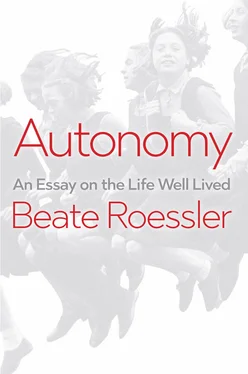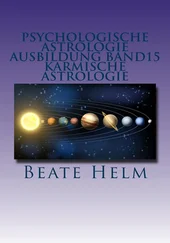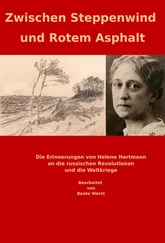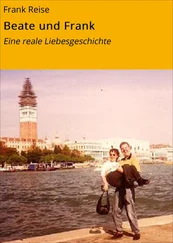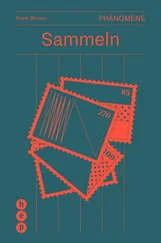In this brilliant and illuminating book, Beate Roessler examines the tension between failing and succeeding to live an autonomous life and the obstacles we have to face when we try to live our life autonomously, obstacles within ourselves as well as those that stem from social and political conditions. She highlights the ambiguities we encounter, examines the roles of self-awareness and self-deception, explores the role of autonomy for the meaning of life, and maps out the social and political conditions necessary for autonomy. Informed by philosophical perspectives but also drawing on literary texts, such as those of Siri Hustvedt and Jane Austen, and diaries, including those of Franz Kafka and Sylvia Plath, Roessler develops a formidable defense of autonomy against excessive expectations and, above all, against overpowering skepticism.
Beate Roessleris Professor of Philosophy at the University of Amsterdam.
For Rebecca
“Me wherever my life is lived, O to be self-balanced for contingencies”
Walt Whitman, “Me Imperturbe”
Autonomy
An Essay on the Life Well Lived
Beate Roessler
Translated by James C. Wagner
polity
Originally published in German as Autonomie: Ein Versuch über das gelungene Leben © Suhrkamp Verlag Berlin 2017. All rights reserved by and controlled through Suhrkamp Verlag Berlin.
This English edition © Polity Press, 2021
The translation of this work was funded by Geisteswissenschaften International – Translation Funding for Work in the Humanities and Social Sciences from Germany, a joint initiative of the Fritz Thyssen Foundation, the German Federal Foreign Office, the collecting society VG WORT and the Börsenverein des Deutschen Buchhandels (German Publishers & Booksellers Association)
Excerpt from The Sovereignty of Good , Iris Murdoch, Copyright © 1970, Routledge. Reproduced by permission of Taylor & Francis Group.
Polity Press
65 Bridge Street
Cambridge CB2 1UR, UK
Polity Press
101 Station Landing
Suite 300
Medford, MA 02155, USA
All rights reserved. Except for the quotation of short passages for the purpose of criticism and review, no part of this publication may be reproduced, stored in a retrieval system or transmitted, in any form or by any means, electronic, mechanical, photocopying, recording or otherwise, without the prior permission of the publisher.
ISBN-13: 978-1-5095-3799-0 – hardback
ISBN-13: 978-1-5095-3800-3 – paperback
A catalogue record for this book is available from the British Library.
Library of Congress Cataloging-in-Publication Data
Names: Roessler, Beate, 1968- author. | Wagner, James C., translator.
Title: Autonomy : an essay on the life well lived / Beate Roessler ; translated by James C. Wagner.
Other titles: Autonomie. English
Description: English edition. | Cambridge, UK ; Medford, MA, USA : Polity, [2021] | “Originally published in German as Autonomie. Ein Versuch ŭber das gelungene Leben Suhrkamp Verlag Berlin 2017.” | Includes bibliographical references and index. | Summary: “A rich philosophical examination of why it matters to live an autonomous life”-- Provided by publisher.
Identifiers: LCCN 2020042602 (print) | LCCN 2020042603 (ebook) | ISBN 9781509537990 (hardback) | ISBN 9781509538003 (paperback) | ISBN 9781509538010 (epub) | ISBN 9781509544936 (adobe pdf)
Subjects: LCSH: Autonomy (Philosophy) | Life.
Classification: LCC B808.67 .R6413 2021 (print) | LCC B808.67 (ebook) | DDC 128--dc23
LC record available at https://lccn.loc.gov/2020042602
LC ebook record available at https://lccn.loc.gov/2020042603
by Fakenham Prepress Solutions, Fakenham, Norfolk NR21 8NL
The publisher has used its best endeavours to ensure that the URLs for external websites referred to in this book are correct and active at the time of going to press. However, the publisher has no responsibility for the websites and can make no guarantee that a site will remain live or that the content is or will remain appropriate.
Every effort has been made to trace all copyright holders, but if any have been overlooked the publisher will be pleased to include any necessary credits in any subsequent reprint or edition.
For further information on Polity, visit our website: politybooks.com
Preface to the English Edition
Since the initial publication of my book on autonomy by Suhrkamp in 2017, I have had many opportunities to give lectures and take part in discussions about the propositions found in it – and I am enormously grateful to all the participants for their many suggestions and critical contributions. For the English translation, then, I was faced with the choice of either thoroughly reworking large parts of the book, incorporating the most recent literature, and thus almost writing a new book – or having the book translated and published in its original form, in full awareness of its shortcomings. I decided on the latter option, changing only a few details here and there, and I hope that I can nevertheless count on a similarly positive reaction to the one I was so happy to see the German edition receive.
I owe great thanks to the many bilingual friends and critics who read, commented on, and discussed the book and parts of the translation with me – including and especially those who helped to get the translation going. I only want to mention two here: Robert Pippin, who encouraged me enormously and at decisive moments; and Hannah Ginsborg, whose enthusiasm and whose assistance and support in discussing the translation of some of the more unwieldy words (like Unhintergehbarkeit or Lebenslüge ) were a huge help.
At Polity, Elise Heslinga was always patient and endlessly helpful during these difficult pandemic times. I would also like to thank my translator James Wagner, who transformed my sometimes rather long sentences into shorter English units meticulously and with great dedication, and who tolerated my at times unhappy search for what I really wanted to express with an abundance of patience and persistence.
Finally, I am very grateful to Maarten van Tunen, whose bibliographical assistance with the many footnotes was invaluable.
Amsterdam, July 2020
This book is about the contradictions or tensions between our conception of ourselves as autonomous persons and our everyday experiences of a not particularly self-determined life. It is not a purely academic treatment but rather aims to be accessible also to readers who haven’t studied philosophy but are interested in the idea of autonomy and the life well lived. Hence on the whole, I have tried to write this book differently than I would have were it only for my philosophical colleagues; this was certainly easier to manage in some chapters than in others. I also frequently use an inclusive “we,” in the hope that I have in fact written this book for the people who may pick it up and find themselves in it.
I have been occupying myself with the problem of autonomy for many years now. During this time, I have had frequent opportunities to deliver lectures on the topics covered in this book. I profited greatly from the discussions that followed these talks, and I thank all those who participated for their critiques and suggestions. Particular gratitude is owed, however, to those friends and colleagues who read earlier versions of some of the chapters and those who patiently discussed numerous problems with me again and again: Joel Anderson, Katharina Bauer, Gijs van Donselaar, James Gledhill, Eva Groen-Reijman, Elisabeth Holzleithner, Naomi Kloosterboer, Thomas Nys, Andrew Roberts, Kati Röttger, Holmer Steinfath, and Henri Wijsbek. Their constructive comments were a great help to me.
Читать дальше
